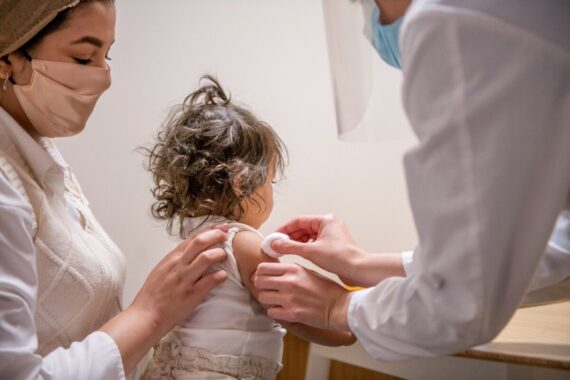Exclusive An ICB has officially ended a scheme developed by the previous CCG to top up GP practices’ childhood immunisations income.
Last year, Pulse revealed that GP practices were set to lose tens of thousands in income from these QOF indicators due to stricter targets, and in response NHS Newcastle Gateshead CCG decided to set up a scheme helping GP practices that were adversely affected.
At the time, GP leaders said the new requirements for 2021/22 – which removed exception reporting while insisting on 95% uptake of immunisations – had disproportionately affected practices with a high number of migrant families.
When North East and North Cumbria (NENC) ICB was established in July last year, it decided to halt the scheme developed by Newcastle Gateshead CCG, saying the decision to top up income was under review.
In correspondence seen by Pulse, the ICB confirmed last month the scheme ‘could not be supported’ as it ‘did not clearly demonstrate that it would be in place to enhance services for patients over and above the requirements outlined in the core contract/ QOF’.
NENC ICB also said the changes to childhood immunisation indicators for this financial year ‘appear to have mitigated the many concerns practices raised’.
The contract for this year included some form of exception reporting for children who register late in the financial year, or at the upper end of age limits, and also lowered the target thresholds.
However, Gateshead and South Tyneside LMC chair Dr Paul Evans said these changes do not address the money lost in the previous two financial years.
He told Pulse: ‘We’re looking at 10 to 20 grand a year for some practices. This is absolutely money that these practices are then not able to spend on extra time for sessional GPs, extra locum sessions, extra nursing and HCA time.
‘It’s resource that’s not gone into general practice and therefore can’t be spent on more staff hours to deliver better care in general practice.’
Practices who have signed up to the ‘safe surgeries scheme’ and who have made it easier for migrant families to register have been ‘absolutely hammered’ by QOF requirements over the last two years, according to Dr Evans.
He said: ‘These children, if they’ve come to us not vaccinated in QOF timescales, we will still do the right thing, we will still vaccinate them.
‘We’ve had plenty of kids who come to us by ages five, six, seven who’ve had no imms, or a few imms but we’re not certain what because we’ve got no records, because funnily enough in the journey between the Democratic Republic of the Congo or Eritrea, over the Sahara through to the UK, their vaccination records didn’t come with them.
‘We’ve then worked on the basis they’re unvaccinated. We’ve then vaccinated them with a sort of infant schedule to make sure they’re covered for everything we could possibly cover them for.
‘And the way the QOF was set up, not only does it not recognise this, it actually punishes us for having these kids on our books.’
In its correspondence detailing the final decision to end the scheme, NENC ICB said: ‘[The scheme’s] overarching aim was to offset the losses sustained by practices because of adjustments of QOF […]
‘The ICB Executive stated that it is unable to use primary care delegated funds such as QoF or any other funding to offset losses for Practices, which result from contract performance metrics. The Vaccs/Imms LES therefore could not be supported.’
NENC ICB declined to comment.
An email to primary care staff from the previous CCG in Norfolk and Waveney last year revealed that NHS England had blocked local support to practices who were unable to reach childhood immunisation targets.
In June, the primary care minister Neil O’Brien indicated that there will be a consultation launched this summer into the future of QOF.
This consultation has not yet begun, however last month NHS England’s national director of primary and community care services Dr Amanda Doyle confirmed that they are committed to a public consultation on QOF and that there is ‘an opportunity for longer-term reform of the GP contract from 2025/26.









I think the answer is for practices so affected to insist on there being set up a service with sufficient funding for practices taking on migrants, starting with the very fisrt one they take on in the year 2023-2024 (ie backdated) as this decision was backdated.
Effectively this is an attempt by central UK government to prevent migrants and refugees from accessing NHS services.
Shame on the UK government for causing the problem in the first place by causing wars and corruption in their countries of origin.
I hope none of the parents and patients affected are voting for continuance of the inhumane UK foreign and refugee policies?